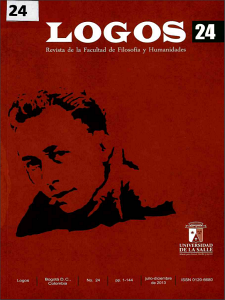Abstract
Ernst Jünger’s thought plays an important role in the first half of the twentieth century, a period characterized by the experience of two world wars. Said thought, in the context of contemporary philosophy, has been known for being a close reading of Modernity and, at the same time, visionary of its consequences. In this sense, Ernst Jünger’s philosophy represents the turning point that managed to elucidate reality from a new character, in which the practice itself was linked to basics. In this regard, it can be noted that Ernst Jünger’s philosophy actively assumes the phenomenon of nihilism from heroic realism; that is, in the historical need of forming a new human type that can be understood in the world.Downloads
Download data is not yet available.



